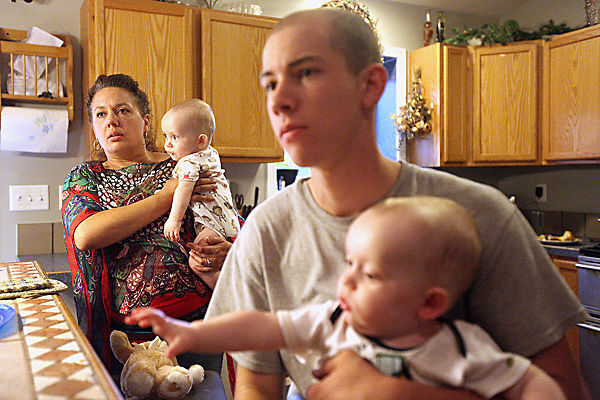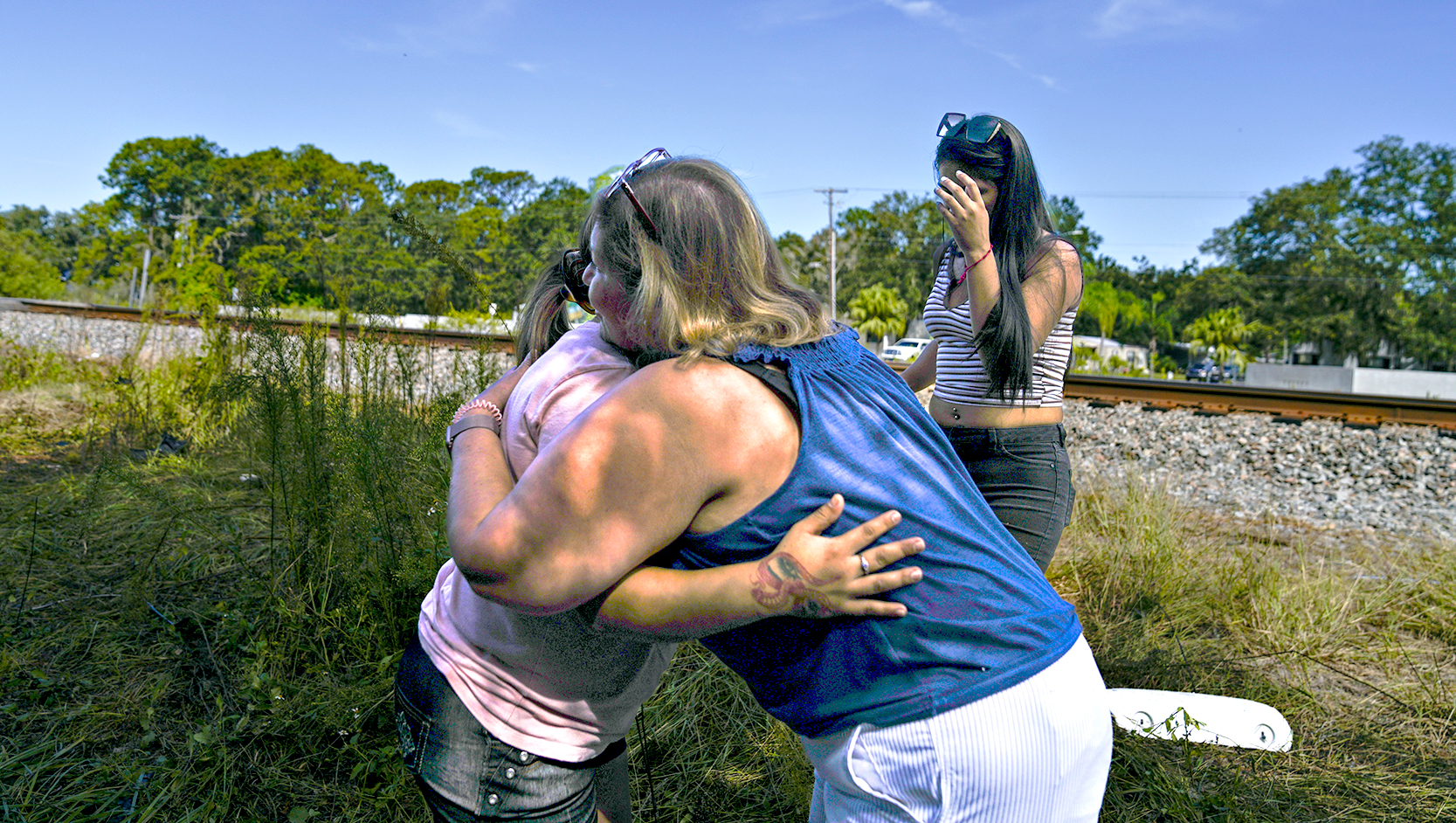How the FCC is trying to improve patchy internet access in rural areas
Published 3:36 pm Tuesday, August 23, 2016

- Shellie Milhone, left, holds her grandson, Isaiah Rowan, while her son-in-law, Tailer Rowan holds his son Wyatt Rowan during dinner at their home in Beulah.
TRAVERSE CITY, Mich. — Gary Taylor and his wife, Michelle Milline, have a home in northern Michigan’s Benzie County that’s tucked away from busy highways and developed towns. Located not far from Lake Michigan, the house affords the couple a life mostly free from the stresses of urban life.
But it’s not without a need for modern connection. For Taylor, who owns a small business, internet access is more necessity than luxury.
“It’s not life or death, but it’s pretty devastating,” he said.
The couple shares internet with a home next door owned by Milline’s father, Gary Mehrer. It’s a $100 monthly plan with limited data that often runs out before the month’s end.
The family adjusts. Taylor and Milhone keep their Ironhorse Western and Cycle Wear storefront in Honor, about 10 miles away, instead of moving it to their home because it has better web connection, something vital to the shop’s operations.
Mehrer takes a laptop to the Interlochen Eagles Club to order medication and communicate with his Veterans Administration doctors. He gets up in the middle of the night, when internet speeds are faster, to do online research. He pays $49 per month to operate his life-alert his emergency medical response device through a satellite because his internet connection is unreliable.
Milhone dropped out of her University of Phoenix hospitality classes because her web connection was so slow.
“It’s a mess, especially for $100 a month,” she told the Traverse City, Michigan Record-Eagle.
The family isn’t alone. Many rural northern Michigan residents — like others across the country who live far from major highways and towns — have access to only expensive but patchy connections with limited coverage options.
Nearly 40 percent of rural America is unwired, according to Federal Communications Commission data. That’s a large chunk compared to the 4 percent of U.S. urban areas with internet access at speeds less than 25 megabits per second download and three Mbps upload — the FCC’s threshold.
Clearly, the internet has become entrenched as part of Americans’ daily infrastructure.
“It’s just become more basic to daily life,” says FCC spokesman Mark Wigfield. “From finding a job to doing your homework to shopping or getting services from local governments to healthcare, we all use (the internet) daily or hourly for a variety of reasons.”
Among the challenges of providing quality wireless internet in rural areas are such variables as distance, topography and canopy density, according to Kris Shafer, who founded Elevate Net, an IT company specializing in bringing broadband to rural areas in the area.
“There’s just so many different variables that come into play, and that’s one of the things that makes northern Michigan more of an issue for wireless communication,” Shafer said. “We have so much tree density and then we have so much varying topology that makes it interesting.”
Eric Frederick, executive director of Connect Michigan, a state-funded nonprofit that aims to spread web connection and use in Michigan, says wiring rural homes for internet access is trickier and more expensive than doing so for urban homes for a variety of reasons. Internet providers get a better return when customers are closer together and signals are stronger in places where underground wires provide coverage.
“Internet is becoming more and more of a critical infrastructure for everybody to do just everyday functions,” Frederick said. “We want to make sure everyone in the state has a chance to do that.”
The FCC is subsidizing internet companies to expand their reaches into rural areas through its Connect America Fund, an effort similar to the commission’s push to spread electricity and phone lines throughout the country in the early days of those technologies.
The FCC will give AT&T, CenturyLink and Frontier more than $350 million to provide service to more than 186,000 Michigan homes through its Connect America Fund, Frederick said. Thirty-six independent companies could get additional FCC funding to reach 34,000 more homes, he said.
Nationwide, the FCC last year provided more than $1.5 billion to private carriers to expand and support internet access for more than 7 million consumers in 45 states.
“Access to modern broadband is critical to life in today’s society,” FCC Chairman Tom Wheeler said, calling the program “an investment in the future of our rural communities that will pay dividends for all Americans for years to come.”
Subsidies for those companies are “needed in rural America because there’s lower population density so there are fewer people to provide funding through taxes,” Winfield said. The FCC’s funding “tries to make the cost of the service reasonably comparable to the price paid by urban residents.”
Milhone hopes for a solution soon, but she’s not optimistic. Her son soon will start his freshman year in high school and likely will need to use online resources to do homework. Milhone’s daughter used to haul her backpack to a nearby McDonald’s to use the restaurant’s internet to complete her assignments.
It’s an extra and unfair strain of country life, Milhone said.
“Just because we live in a rural area doesn’t mean we need to get crappy internet,” she said.
The Traverse City, Michigan Record-Eagle contributed to this story.





